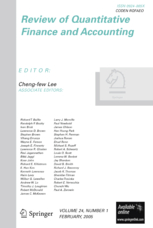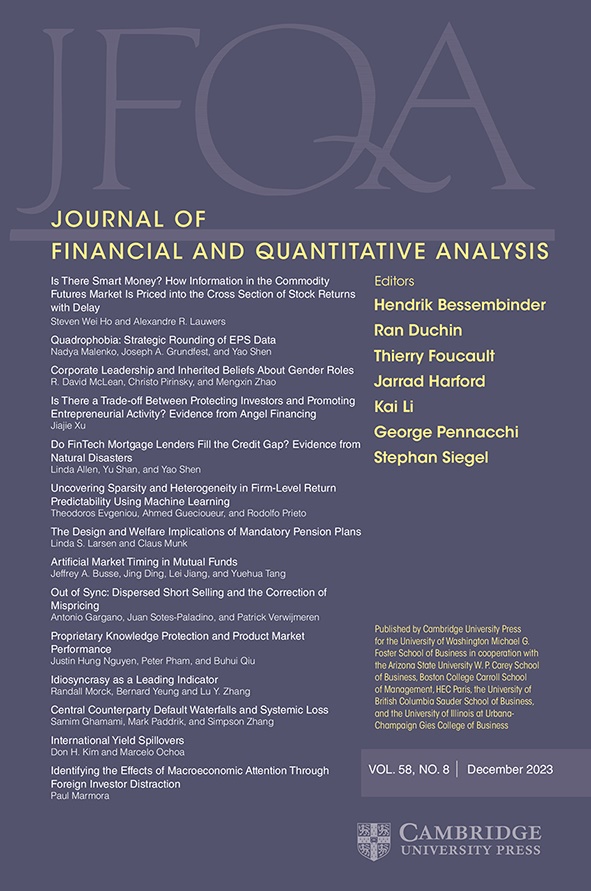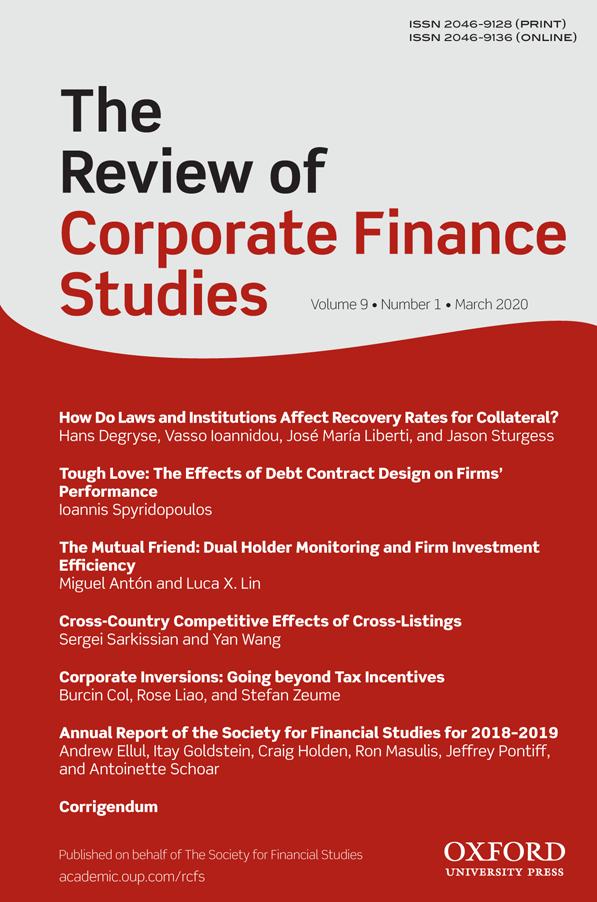Governance and Finance
In recent decades, corporate governance no longer focuses on maximizing shareholder value but on balancing all stakeholders' interests. Corporate governance is then viewed more broadly as the nexus of rules, practices, and processes that determine the objective of a firm. Absent good governance, shareholders might realise inferior returns, creditors might lose interest payments, business partners might suffer from contract breaches, and employees might lose their future career opportunities (e. g., managers that used to work for Enron). High-quality governance ensures that all stakeholders' capital is effectively managed. Firms benefit from good governance in various ways, such as a higher valuation, a lower cost of capital, better talent attraction, and higher customer loyalty, for example.
The research group “Governance and Finance” studies traditional and modern views of corporate governance in financial markets and contributes to the literature in two ways. First, it contributes to understanding the effectiveness of different governance mechanisms' roles in talent selection, incentive, and retention. Individuals carry out corporate objectives, and good governance must ensure that the most qualified talent is allocated to the optimal position, exerts optimal effort, and stays with the firm. For example, the most important duty of the board of directors is to select, incentive, and retain the most talented/suitable CEO.
Second, this group also investigates how various forces in credit market impact corporate governance. Various stakeholders seek to influence corporate strategy differently with recent advances in the financial market. For example, the rise of common ownership might reduce firms' incentives to compete, the increase of active ownership might suddenly switch firms' investment strategies (i. e., shareholder activism), and the participation of shareholders in the credit market provides opportunities to internalise the shareholder-creditor conflicts. This group's research seeks to advance the knowledge of different stakeholders' methods and their effectiveness in influencing governance objects.
Workpackage 1: Talent Selection, Incentive, and Retention
Workpackage 2: Stakeholders and Governance
Research Cluster
Financial Resilience and RegulationYour contact

- Department Financial Markets
Refereed Publications

Market Feedback Effect on CEO Pay: Evidence from Peers’ Say-on-Pay Voting Failures
in: Journal of Financial and Quantitative Analysis, forthcoming
Abstract
<p>We find that a firm’s stock price drops when its compensation peer firm announces a severe say-on-pay voting failure. This price drop causes a reduction in the focal firm CEO’s pay in the following period. The effect on CEO pay is stronger when the board of directors is more powerful, when the proxy advisor holds a negative view of the CEO’s pay, and when the hired compensation consultant is less reputable. Directors who cut their CEO’s pay following the price drop receive more voting support from investors than other directors. Our findings show that the peer firm’s voting failure induces a market-feedback effect for focal firm directors.</p>

CEO Personality Traits and Compensation: Evidence from Investment Efficiency
in: Review of Quantitative Finance and Accounting, forthcoming
Abstract
<p>We examine the effects of the big five personalities of CEOs (openness, conscientiousness, extroversion, agreeableness, and neuroticism) on their annual compensation. We hand-collect the tweets of S&P 1500 CEOs and use IBM's Watson Personality Insights to measure their personalities. CEOs with high ratings of agreeableness and conscientiousness get more compensation. We further find that the firms with these CEOs outperform their peers due to better investment efficiency. Firms are willing to pay higher compensation for talent, especially for firms with better operations, located in states with higher labor unionization, or facing higher competition in the product market. Overall, CEO personality is a valid predictor of CEOs' compensation.</p>

The Corporate Investment Benefits of Mutual Fund Dual Holdings
in: Journal of Financial and Quantitative Analysis, No. 2, 2025
Abstract
Mutual fund families increasingly hold bonds and stocks from the same firm. We present evidence that dual ownership allows firms to increase valuable investments and refinance by issuing bonds with lower yields and fewer restrictive covenants, especially when firms face financial distress. Dual holders also prevent overinvestment by firms with entrenched managers. Overall, our results suggest that mutual fund families internalize the agency conflicts of their portfolio companies, highlighting the positive governance externalities of intra-family cooperation.

Creditor-control Rights and the Nonsynchronicity of Global CDS Markets
in: Review of Corporate Finance Studies, No. 1, 2025
Abstract
<p>We analyze how creditor rights affect the nonsynchronicity of global corporate credit default swap spreads (CDS-NS). CDS-NS is negatively related to the country-level creditor-control rights, especially to the “restrictions on reorganization” component, where creditor-shareholder conflicts are high. The effect is concentrated in firms with high investment intensity, asset growth, information opacity, and risk. Pro-creditor bankruptcy reforms led to a decline in CDS-NS, indicating lower firm-specific idiosyncratic information being priced in credit markets. A strategic-disclosure incentive among debtors avoiding creditor intervention seems more dominant than the disciplining effect, suggesting how strengthening creditor rights affects power rebalancing between creditors and shareholders.</p>

Corporate Social Responsibility and Profit Shifting
in: European Accounting Review, No. 1, 2025
Abstract
This paper examines the relation between corporate social responsibility (CSR) performance and tax–motivated income shifting. Using a profit–shifting measure estimated from multinational enterprises (MNEs) data, we find that parent firms with higher CSR scores shift significantly more profits to their low-tax foreign subsidiaries. Overall, our evidence suggests that MNEs engaging in CSR activities acquire legitimacy and moral capital that temper negative responses by stakeholders and thus have greater scope and chance to engage in unethical profit-shifting activities, consistent with the legitimacy theory.
Working Papers

Censored Fractional Response Model: Estimating Heterogeneous Relative Risk Aversion of European Households
in: IWH Discussion Papers, No. 11, 2015
Abstract
This paper estimates relative risk aversion using the observed shares of risky assets and characteristics of households from the Household Finance and Consumption Survey of the European Central Bank. Given that the risky share is a fractional response variable belonging to [0, 1], this paper proposes a censored fractional response estimation method using extremal quantiles to approximate the censoring thresholds. Considering that participation in risky asset markets is costly, I estimate both the heterogeneous relative risk aversion and participation cost using a working sample that includes both risky asset holders and non-risky asset holders by treating the zero risky share as the result of heterogeneous self-censoring. Estimation results show lower participation costs and higher relative risk aversion than what was previously estimated. The estimated median relative risk aversions of eight European countries range from 4.6 to 13.6. However, the results are sensitive to households’ perception of the risky asset market return and volatility.









